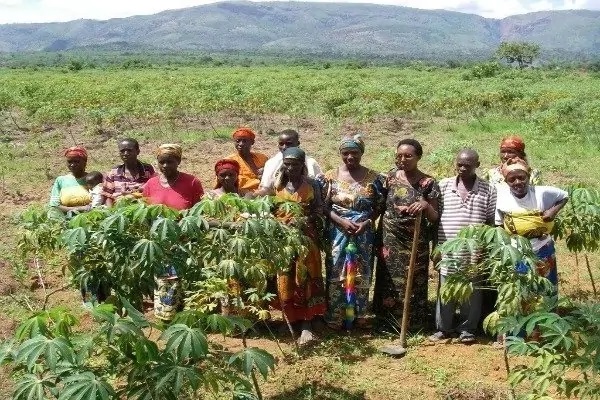Several factors determine access to agricultural loans. There is no doubt that information is vital in every aspect of human endeavor. The majority of smallholder farmers in Nigeria reside in rural communities and are not aware of the availability of loans to aid the enhancement of their farm production. However, only a few of them are aware of credit facilities’ availability, and even if they know, they lack proper information on how to access these agricultural credit facilities.
General Terms and Conditions of Credit Facilities
Another crucial factor is the general terms and conditions required for smallholder farmers to access agricultural loans. The majority of financial institutions place a high-interest rate that may be quite difficult for most farmers, therefore discouraging them from taking the loans.
Also, collateral is a major criterion a farmer need to present to get the loans, and the farmer may not meet the collateral criteria. Collateral comprises equipment or vehicles, properties, fixed deposits or belongings like a cow, goats, among others. Financial institutions might decide not to loan a small scale farmer due to inadequate collateral.
Non-Repayment of Loans
Many small-scale farmers do not repay loans, which contributes to their inability to access more agricultural loans. In fact, a very small proportion of farmers pay back their loans. Such situations will only discourage financial institutions as well as the government from lending to small scale farmers.
The Deputy Governor of Kano State, Alhaji Nasiru Yusuf, during the International Agric Expo held in the state in 2018 lamented that many farmers in the state did not pay back loans they received. He further stated that out of 4,500 farmers who benefited, only 4 of them repaid the loans.
Certificates of Occupancy (Cs-of-O)
Mr. Jare Oyesola, the newly inducted President of the Abeokuta Chamber of Commerce, Industry, Mines and Agriculture (ABEOCCIMA), observed at the 44th Annual General Meeting in Ogun State, Abeokuta where he stated that the Central Bank of Nigeria had refused farmers’ appeal to accessing loans because the majority do not have Certificates of Occupancy (Cs-of-O).
He explained that without the C of O, processing loans would be difficult.
Besides, he stated the current Land Use Act in the state only allows the state government to issue the Certificates of Occupancy and pleaded the local government should be allowed to issue such certificate to make land-use easy and more accessible for farming and subsequently accessing agricultural loans. Land is easily gotten in the Northern part of the country than the South West.
“From my experience, the Central Bank of Nigeria and international companies recognize a Cs-of-O issued by a local government and they will give farmers loan because it shows the evidence that they are authorized to till that land,” he explained.
He further reinstated that the central bank of Nigeria in Abeokuta Ogun State said they couldn’t provide more loans to farmers because they do not possess the certificates.
The C of O certifies that they are authorized to cultivate the land.
There are lots of farmers in Nigeria without the C of O. Many of them got lands on lease, inheritance, or rent, and their landowners do not even have the certificate.
Low Allocation of Private Credits to the Agricultural Sector
The low allocation of credits to the Nigerian agricultural sector is a challenge that limits the available funds for farming.
According to a recent report by the National Bureau of Statistics (NBS), the agricultural sector contributes about a third of the nation’s GDP and employs almost half of working Nigerians.
Despite its contribution to the country, it receives only 3% of its private sector credit. The oil and gas sector got the highest with 22%, which is ₦3.58 trillion. The manufacturing sector got the second-highest with 14%. This is because financial institutions make a better profit from short-term lending and high returns. With the short term activity of oil firms by exporting crude oil and importing the refined products tally with financial institutions’ goals. However, agricultural investments take a long time to yield positive returns.
Poor Bookkeeping Practices
In addition, poor bookkeeping practices and limited financial skills among small scale farmers hinders adequate allocation of funds to the agricultural sector, hence, limited funds for farmers to access.
A fundamental question is how many smallholder farmers or firms in the agricultural sector use the Nigerian formal banking system? According to the Central Bank of Nigeria, The numbers of Nigerians without bank accounts are 40%. Given the rural nature of agriculture and its location, there is every possibility that farmers make up the majority of that figure compared to the oil and gas sector.
Without the proper use of the banking system, it will be difficult for banks or financial institutions to access the financial flow or accounts to determine if they meet the criteria or can refund a loan based on previous cash flow in their accounts.
The majority of Nigerian farmers don’t use formal banking systems, and some don’t even use banks. From experience, many farmers claim banks are too far from their villages, so they prefer keeping their cash at home even after selling their produce. How then are the small scale farmers expected to get loans or even the sector getting a substantial allocation?
The Way Forward
What is the way forward despite all these challenges? The best way is for small scale farmers to address the issues discussed. In my next post, I will discuss these.




